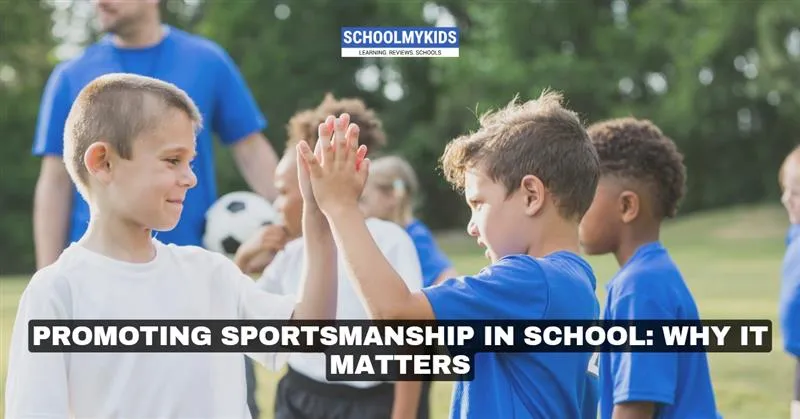Lately, there has been intense competition in everything. Unfortunately, sportsmanship often feels hidden in the race of success.
It's time to question—what's a real win?
For kids in school, learning the values of respect and teamwork might just be the ultimate win. The simple gestures of fairness are what truly shape their character and build empathy in them, beyond just sports.
In short, sportsmanship teaches kids how to win with humility and lose with grace.
Read this article to explore why sportsmanship really matters and how schools can promote it.
Building Character Through Competition
Sportsmanship, in simple words, means showing respect—for teammates, opponents, coaches, and the rules of the game. This spirit is also about playing fairly, helping others, and staying positive whether you win or lose. Sportsmanship teaches kids how to deal with competition in a healthy way. After all, it's not just about winning but more about how you play the game. In fact, even studies have proven that kids who practice good sportsmanship have higher chances to succeed academically and socially. With this habit, they also learn to control their emotions, be kind to others, and focus on effort, and not merely the end results.
This skill is something that they will need throughout their life.
4 Ways Schools Can Promote Sportsmanship
From being their role models to incorporating the values into the curriculum, here are four effective ways schools can promote sportsmanship among students.
Set a Good Example
One of the best practices is to be the students’ role model. Thus, teachers and coaches should always show respect during games. This is because kids learn by watching adults, and noticing a positive behavior can make a big difference.
Say Cheers to Kindness
Praising kids whenever they do something good actually motivates them to do better. Thus, another helpful approach is to reward kids who show good sportsmanship. This can be as simple as praising them whenever they help a teammate or show respect to an opponent.
Solving Problems Calmly
Another way is to help kids solve their problems calmly. As a teacher, you can help them to talk things out while also understanding their different points of view. Role-playing exercises in physical education classes can be a great way to do so.
Include Sportsmanship In The Curriculum
Incorporating such values in the curriculum can play a big role in letting students know the importance of such healthy values. After all, kids are more likely to practice when they see it in action. You can even use stories and videos that demonstrate the role of sportsmanship.
Takeaway
Sportsmanship doesn’t end when the game is over. This is rather a skill that will help them in school, at home, and in the future. Almost 78 percent of people actually believe playing sports helped them grow as people, as per a survey. In short, the lessons of sportsmanship are as important as scoring points or winning games. It's time to let your kids know that how they play the game is what truly makes them winners.








Be the first one to comment on this story.